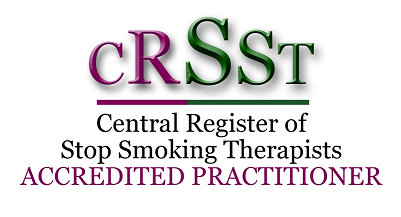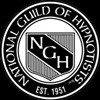Children and Teenagers
Hypnotherapy - " Extremely successful and popular" in relieving symptoms of depression and anxiety.
( Times December 26th 2018 - University of Southhampton)
Huge increase in antidepressants prescriptions for children.
More than 950,000 antidepressants prescribed to children since April 2015
15% Rise in England - Experts link the rise to long waiting lists for specialist mental health services.
The National Institute for Health and Care Excellence ( NICE) has very clear guidelines:
Prescriptions should be written by a child psychiatrist within CAMHS - NOT GP's
Antidepressants should be offered only concurrent with psychological therapy.
The patient MUST be monitored for adverse reactions.
hypnosis for children's issues
Hypnosis can prove highly effective in the treatment of children’s issues.
Common issues include Learning problems: Academic Performance, Anxiety, Bedwetting (Enuresis) Soiling, Stuttering or Stammering, Pulling of Hair, Phobias , Self-Esteem, Thumb Sucking, Nail Biting, Frequent Nightmares.
The trauma of Divorce or Death of a loved one are challenges which can be helped with hypnosis.
School can be a significant area of difficulty for many children.
Everything ranging from Exam Fears to the effects of Bullying can be addressed with hypnosis. Children can gain significant improvement in their self-confidence and ability to succeed with the help of hypnosis. Hypnosis can help them learn healthy and empowering coping techniques. It can help enhance and release their creativity also. With help, a child can become much more successful and happier.
Bedwetting (Enuresis):
Children who wet the bed often struggle with feelings of shame and embarrassment, and feel a significant lack of control. They often feel especially vulnerable and their self-esteem can suffer significantly if the problem is not addressed and resolved as quickly as possible. Hypnosis can be an effective treatment for this particular childhood issue.
Children can prove to be very receptive to hypnosis. It can be a very positive experience for them. Always be sure to choose a registered hypnotherapist who is skilled in working with children.
Anxiety and Stress in children and teenagers.
A degree of Anxiety and Stress is normal. Everyone experiences anxiety and stress at some point in time. For example, it is normal to feel anxious when on a rollercoaster or before an exam.
Anxiety is adaptive. Anxiety helps us prepare for real danger, such as crossing a busy street. It can also help us perform at our best, and motivate us to study for an exam or practice for a big game. When we experience anxiety, it triggers our "fight-flight-freeze" response, and prepares our body to react. For instance, our heart beats faster, to pump blood to our muscles, so we have the energy to run away or fight off danger. Without it, we would not survive.
However anxiety becomes a problem when our body reacts in the absence of real danger.
Anxiety and negative stress are the most common mental health concerns for children.
Recent press reports cite a near epidemic of eating disorders sweeping through the country’s top independent schools.
Children from “aspirational” families are the “fastest growing” group using mental health services as they struggle to cope with the pressure of attaining top grades.
“Being high – achieving, perfectionist and competitive” are all traits that are celebrated in highly academic schools. These traits are also among the serious risk factors associated with eating disorders.
Anxious children and teens are often quiet and compliant, therefore the symptoms frequently go unnoticed by parents and teachers. As a result, many never receive the help they desperately need. Unfortunately, untreated anxiety can lead to other problems later in life, such as depression, missed opportunities in career and relationships, increased substance use, and an overall decreased quality of life.
Research suggests that anxiety is high among teenagers, affecting their mental health and predisposing them to mental health diseases, such as depression and schizophrenia, and personality disorders, as well as poor physical health. The Office for National Statistics Mental Health in Children and Young People reports that one in ten children up to the age of fifteen suffers a mental health disorder. Their findings also indicate that mental health problems among children rises as they become teenagers or reach adolescence.
Although it’s normal for people of all ages to experience fear, as teenagers’ minds and bodies develop, they are particularly vulnerable to having feelings of excessive fear. These feelings can become a habitual way of feeling and thinking, leading to panic disorders and anxiety/panic attacks.
Children and teens can experience anxiety in their body in many ways:
- Irritable Bowel Syndrome (IBS)
- rapid heart rate
- rapid breathing, feelings of shortness of breath, or breath holding
- discomfort or pain in the stomach, nausea
- feeling very hot or cold
- sweating
- trembling or shaking
- numbness or tingling
- headaches
- chest pain or discomfort
- dizzy, lightheaded, or unsteady feelings
- feelings of a lump in the throat or choking
- feeling things are unreal or feeling detached from oneself
If many of these physical signs happen suddenly and intensely, your child may be having a panic attack. Panic attacks are uncomfortable but not dangerous.
If children and teenagers do not receive the treatment they need, their excessive anxiety can lead to more complex mental health conditions.
Understanding the symptoms and treatments available can help teenagers manage their anxiety before it becomes overwhelming, leading to more serious mental health states while in their teenage years or as adults.
Anxiety is treatable.
Hypnosis can help.
For details of Training completed by Neil Pickering with Lynda Hudson, Specialist Children's Hypnotherapist please follow this link... http://www.firstwayforward.com/Children-Hypnotherapists-Trained-by-Lynda.html







